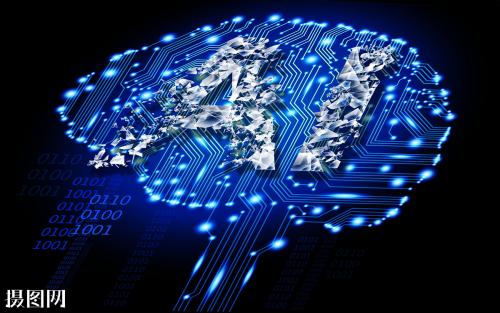Can companies currently rely on artificial intelligence to interact with humans?
Customer expectations are changing, and when they reach out to brands on social media, they are no longer satisfied with those unchanging responses.
In fact, 52% of consumers said that if communication is non-personalized, they will abandon the brand. At the same time, 51% of marketers acknowledge the repeated use of the same information through different channels due to insufficient resources.
For small brands, personalization and realism may be easier to do. However, when your business receives thousands of messages a day and is usually the same content, personalization quickly evolves into a costly thing.
For social media, automation is nothing new. But as "smarter" tools are used in a variety of scenarios, one would think of a logical question: Is artificial intelligence ready to interact with humans on social media?

Chat bots offer personalized service but are not ready to replace humans
Chatbots are one of the solutions for companies that want to add some "personalization" to their automated interactions. According to Gartner estimates, by 2020, chat bots will handle 85% of customer interactions. Millennials especially like chat bots, and 55% of them said that interacting with chat bots has improved their perception of the business.
Chatbots are very good at assisting with daily tasks such as collecting order details, providing contact information, providing custom preferences or scheduling a conference call/meeting. But when a customer raised the issue of "outside the script," these "smart communicators" quickly became useless.
Design gaps and shortcomings in “learning†can also have a negative impact on AI's ability to handle multiple levels of conversation on social media. There used to be a company that let AI send tweets and make a major public relations disaster.
Social listening will become "smarter"
Nearly half of corporate executives believe that the biggest advantage of AI is communication automation, which will provide additional data support for decision making.
As mentioned earlier, chat bots and similar smart tools can effectively collect information about customers, and when used in conjunction with the Neuro-Language Programming (NLP) feature, analyze the myriad conversations that take place online and identify your brand or contest. Key themes, the latest trends and emotions.
AI-powered social media marketing tools can help brands reduce noise and target the right people at the right time and at the right price. For example, as a next-generation “smart†tool, Aubry can track and analyze more than 19 billion real-time customer behaviors online and identify potential customers to buy for the business—rather than just potential customers who are profiled by the crowd. Obviously, artificial intelligence can be analyzed at a scale that the human team cannot compete with.
AI can help better match ads
In addition to helping brands find the right audience and provide them with the information they need, artificial intelligence tools can help you use your data for advertising and make the best advertising choices.
Facebook, Google, and LinkedIn ad platforms already have "smart" features that provide similar customer profiles that match the ad. Not only that, but artificial intelligence to solve impact marketing – in 2017, 92% of marketers found this move to be effective.
But there is always room for improvement. Most brands say that finding and screening for truly high-quality influencers requires a lot of manual work and is very time consuming. Measuring return on investment is also challenging. Artificial intelligence can better handle these chores and even handle more complex tasks, such as:
· Use predefined variables to find influencers with the right target audience, personality and brand style
· Forecast possible influencer performance based on data from past partnerships
· Recommended best time and duration of advertising to reach users in the largest possible range
· Estimate recommended incentives based on the influencer’s known preferences and past behavior
In general, intelligent algorithms can help reduce the risk of working with unmatched influencers who often do not have an audience or credibility that matches a particular brand's activity.
Provide intelligent help to human social media managers
KLM is a popular Dutch airline and they have 130,000 "mentioned" on social media every week. They hired a team of 250 social media managers to handle all of these customer inquiries. Obviously, this is a huge expense that can be optimized.
Artificial intelligence may not be fully prepared to take over all communication on social media, but the help of "smart" can ease the burden on the human team. This is exactly what Dutch Airlines is doing.
Dutch Airlines recently launched a team of human agents and artificial intelligence to handle all social media conversations with customers on Twitter, Facebook Messenger and WhatsApp. More than 50% of incoming queries (usually roughly the same problem) are now handled by AI.
This algorithm can suggest possible answers to human agents based on the context of the conversation, automatically answering the simplest and most common questions. This artificial intelligence system is gradually learning from the behavior of agents, and gradually can handle more complex problems. Human employees no longer deal with repetitive daily chores and have more time to provide personalized support to anxious customers.
Artificial intelligence is not yet ready to act independently on social media and dominate all conversations on behalf of the brand. But artificial intelligence systems are rapidly improving and have proven to be indispensable assistants in human resource management. There is no doubt that we will see more examples of artificial intelligence and human teamwork on social media in the near future.
Linear Array Sensor,Infrared Light Detector Device,Swir Linear Detector,Infrared Ingaas Sensor
Ningbo NaXin Perception Intelligent Technology CO., Ltd. , https://www.nicswir.com